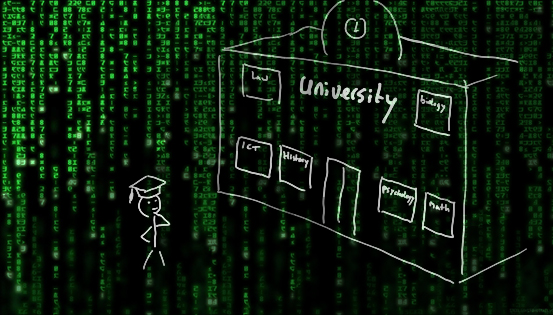People tend to coordinate their actions, feelings, and thoughts with others in social situations. But how does this work? We asked two experts of our department, Dr. Ralf Cox (Developmental Psychology) and Dr. Pontus Leander (Organizational Psychology), who examine this intriguing topic from two different perspectives.
On November 9th 2015, Mattia Roppolo defended his dissertation. In a joint PhD-project, he combined the expertise of the departments of Psychology in Turin and Groningen, and provided new insights in Health Related Quality of Life, using a dynamic systems approach.
In the past five years, Annemie Wetzels has worked on an intervention (coaching) program for teachers. This Thursday, October 29th, she defends her dissertation on the outcomes of this project. In this blogpost, she proposes that person-context dynamics should always be taken into account when conducting interventions in education.
A major challenge in psychology is to build theory on individual change, and to find the tools to do so systematically. For answering questions on individual behavioral change, building a theoretical simulation model can be a powerful tool. By collaborating with theoretical biology, psychologists can enter a whole new realm of formalizing theory.
What do the children’s behaviors teach us about learning? In educational and psychological studies, reasoning skills and peer interaction have been a primary focus of attention. Examining how children solve problems and how they interact with each other constitutes an ideal scenario to understand the learning process.
The language that is used to verbalize thoughts about scientific concepts is more complex and sophisticated than the language we use in our daily conversations. Science and technology lessons provide excellent opportunities for children to be introduced to this sophisticated form of language, whereby teachers play a crucial role.
On April 30, 2015, after a wonderful career, Paul van Geert, professor in Developmental Psychology, bid farewell to the University of Groningen. This blog post gives an image of his farewell speech.
The origins of talent and excellence have been debated since the end of the 19th century. Why are individuals such as Bill Gates, Stephen Hawking, and Epke Zonderland able to demonstrate exceptional levels of performance in their domain? Our Psychology students may help crack the secrets of talent and excellence in the years to come…
As all university students and teachers will have noticed by now, the Dutch government aims to reduce the student drop out in higher education. In this blog post, it is argued that blocking the possibility to change majors in university is detrimental for individual’s identity development, and in the long run for society as well.
Children’s development is mostly seen as gradual and increasing. However, when the development of individual children is observed more closely, you see many sudden improvements, but also fallbacks and regression. This variability turns out to be a crucial part of human development.










